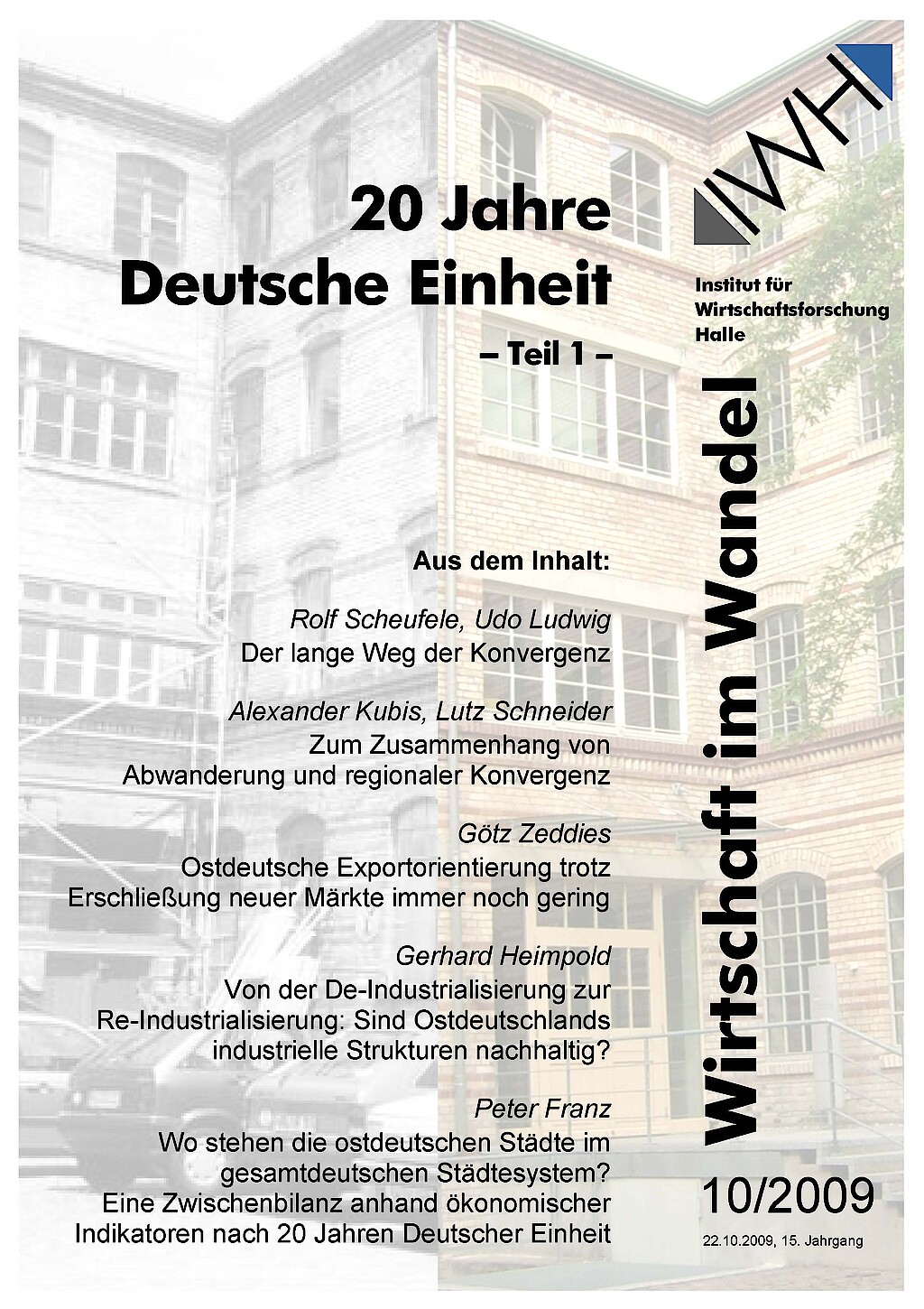
Out-migration and Regional Convergence
Seit 1989 haben netto über 1,8 Millionen Menschen Ostdeutschland den Rücken gekehrt. In diesem Kontext stellt sich die Frage, welcher Zusammenhang zwischen der Binnenmigration – ökonomisch betrachtet der Humankapitalmobilität – und dem regionalen Wachstum besteht. Aus theoretischer Sicht sprechen Gründe sowohl für als auch gegen eine konvergenzfördernde Wirkung von Migration. Insbesondere bei starker Positivselektion der Migranten sollten die Wanderungsbewegungen eher gegen eine Angleichung der Wirtschaftskraft von Regionen wirken. Im vorliegenden Beitrag wird die Frage, wie Migration und Konvergenz, verstanden als Angleichung der Arbeitsproduktivität, zusammenhängen, auf regionaler Ebene für Deutschland im Zeitraum von 1995 bis 2006 empirisch analysiert. Der methodische Ansatz folgt dem Konzept der Beta- Konvergenz, geschätzt wird ein Querschnittsmodell auf Basis von Kreisdaten, die auf dieser Ebene vorliegende räumliche Korrelation wird im Modell berücksichtigt. Im Ergebnis zeigt sich zunächst ein signifikanter Konvergenzprozess auf regionaler Ebene; die ostdeutschen Regionen holen dabei besonders schnell auf. Hinsichtlich der Wirkung von Migration auf regionale Konvergenz finden sich gegenläufige Tendenzen. Die Abwanderung aus armen Regionen wird zwar einerseits begleitet von einem hohen Produktivitätswachstum, die komplementäre Zuwanderung in reiche Regionen geht dort andererseits ebenso mit höherem Wachstum einher. Insofern ist der Konvergenzeffekt der Migration unbestimmt, allerdings sprechen die Ergebnisse für einen wanderungsbedingten Effizienzgewinn auf volkswirtschaftlicher Ebene, wenn die Migration von schwächeren in stärkere Regionen fließt.




